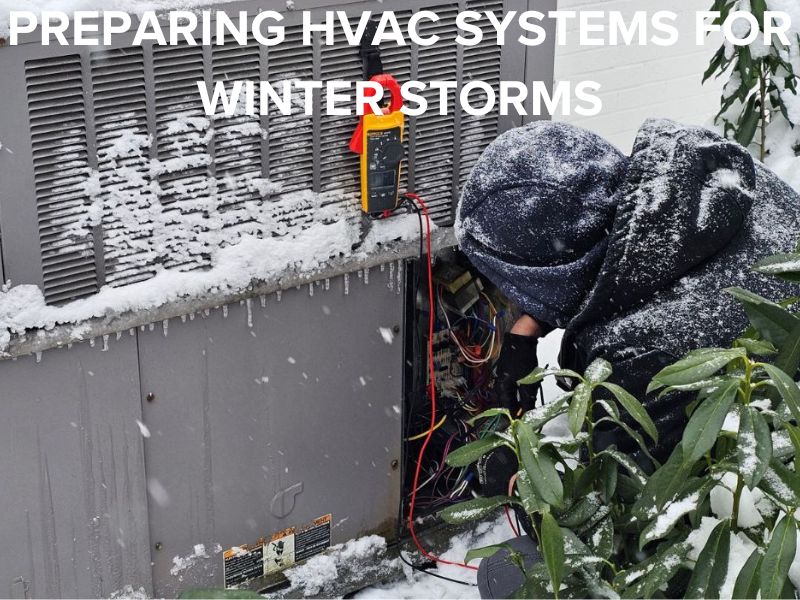Winter storms can cause serious disruptions to HVAC systems. While the A/C unit likely won’t be in use, heaters are frequently required to work overtime.
Our HVAC experts examine how to best prep a residential HVAC system for cold temperatures. Below are some strategies and techniques to defend against seasonal extremes and winter weather patterns.
Resources:
- Ensure Inspection & Maintenance of HVAC System & Heat Pumps
- Clean & Clear Vents
- How Do I Winterize My HVAC System in Tennessee?
Ensure Inspection & Maintenance of HVAC System & Heat Pumps
Snow or rain water that enters an HVAC system can have detrimental impacts in both the short and the long term. The best way to ensure that snow, ice or water does not enter the HVAC system is to have the system inspected by a professional.
If a homeowner cannot remember the last time their HVAC system was maintained, it is time to schedule an inspection with an experienced HVAC technician. During an HVAC maintenance inspection, a technician will ensure air filters are replaced and cleaned to maintain the highest efficiency. The heat pumps and ignition system is reviewed and a thermostat inspection is performed.
HVAC technicians also inspect the furnace to ensure it is free from potential debris and vegetation that could damage and impact the system’s performance. In the event that vegetation is in the proximity of an HVAC component a technician will provide the necessary feedback and offer solutions for the issue at hand.

Clean & Clear Vents
Dust, debris and dirty vents are a leading cause of HVAC inefficiencies. Duct cleaning helps minimize pollutants within an HVAC system and ensures the air is clean and operating at high efficiency.
Cleaning air ducts creates better air quality and reduces pollutants like vermin waste, pollen and other allergens that cause respiratory illness and issues. Additionally, it improves efficiency resulting in lower energy bills.
How Do I Winterize My HVAC System in Tennessee?
Tennessee is prone to seasonal extremes. From high humidity and summer rains to occasional winter snow, residents of the Nashville area need to properly protect the HVAC systems for residential and business units.
Check Bolts
Inspect the bolt and screw security. Ensure components are secured appropriately to minimize connection problems. Bolts should be secure and not loose or rattle during operation.
Install Surge Protectors
During strong winter storms, flooding is possible. Install surge protectors to help protect anything that is plugged into the wall. When electricity surges to electrical outlets, the surge of power can fry components that are plugged into the outlet. Minimize the potential damage of power surges with surge protectors.
Clear Snow, Debris & Ice
When it is safe to do so – during a break watin the storm – clear off any snow, vegetation debris and/or ice that has accumulated around any HVAC equipment that is exposed to the elements.
If possible protect exposed HVAC equipment with tarps or housing equipment that minimizes the exposure to the elements.
Ensure Thermostat is Operating Efficiently
In the event that a region is expected to get hit by a winter storm, an inspection of the thermostat helps ensure that the indoor temperature is reading properly.
Smart thermostats are a great upgrade to older models. Some smart models use deep learning to understand the user behaviors to best optimize the interior temperatures. If you believe that a power outage is imminent, a homeowner can increase the temperature to help offset the impact from a power outage.
